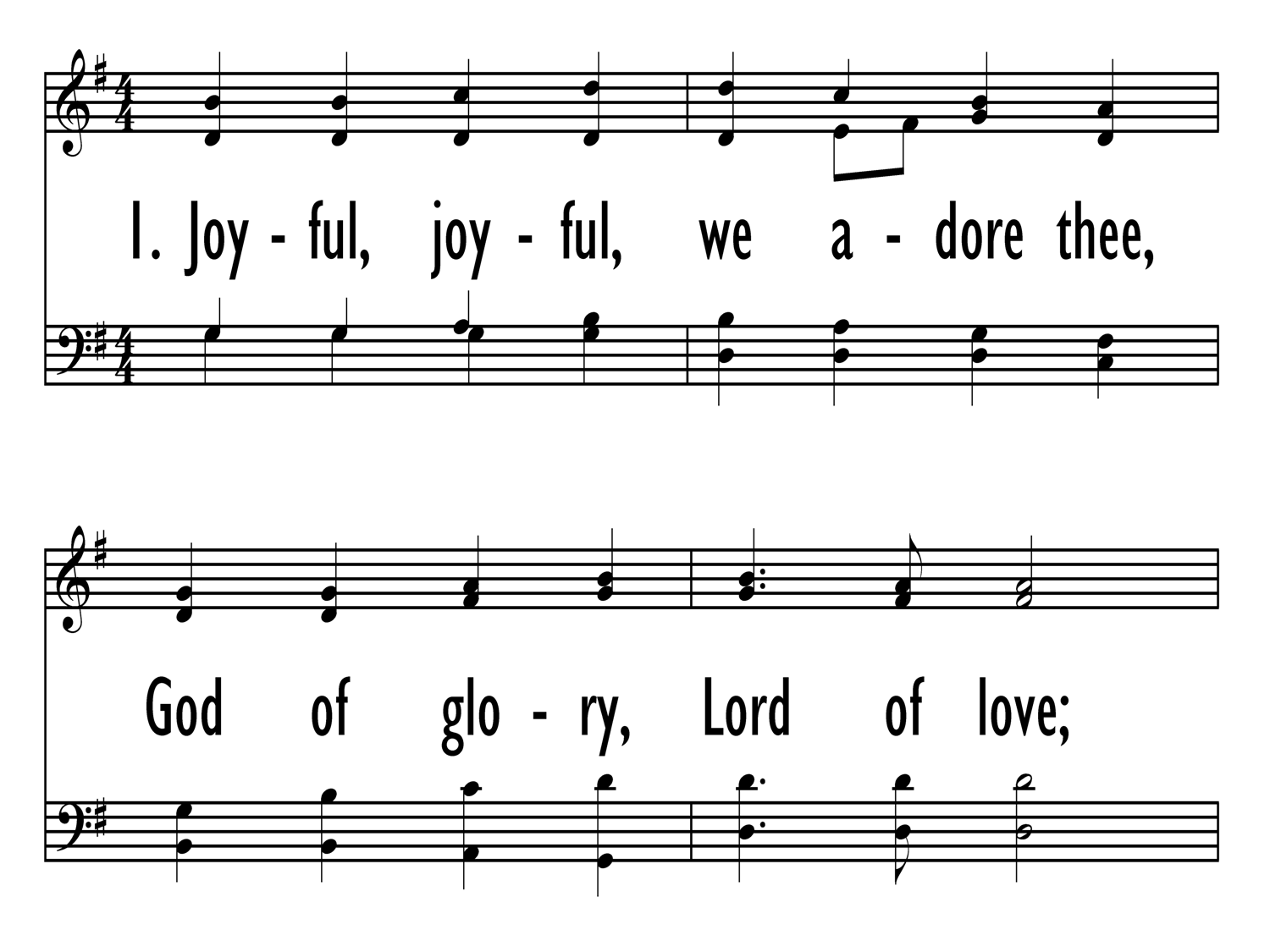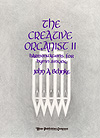- |
User Links
Joyful, Joyful, We Adore Thee
Hymn Information
- First Line
- Joyful, joyful, we adore thee
- Author
- Henry Van Dyke, 1852-1933
- Tune Name
- HYMN TO JOY
- Composer
- Ludwig van Beethoven, 1770-1827 (1824)
- Adapter
- Edward Hodges, 1796-1867 (alt.)
- Topic
- Church Year: Christmas · Creation · Jesus Christ: Lord · Jesus Christ: Love · Joy · Music and Singing · Unity of the Church · Elements of Worship: Praise and Adoration
Copyright Information
- Text Copyright
- Public Domain
- Tune Copyright
- Public Domain
- Reprint/Projection Information
- Words and Music: The Words and Music are in the Public Domain; you do not need permission to project or reprint the Words and Music.
Full Text
Scripture References
- · · · · · · · ·
Confessions and Statements of Faith References
Further Reflections on Confessions and Statements of Faith References
What we know as the attributes of God reveal his character and being. For these, he is worthy of praise and adoration. Even before he says or does anything, he is praise-worthy. The opening words of Belgic Confession, Article 1 declare that God is “eternal, incomprehensible, invisible, unchangeable, infinite, almighty; completely wise, just, and good, and the overflowing source of all good.”
The Lord’s Prayer ends with a doxology, and Heidelberg Catechism, Lord’s Day 52, Question and Answer 128 extrapolates: “Your holy name…should receive all the praise, forever.” After expressing our trust in the total care of God for all things, Heidelberg Catechism, Lord’s Day 9, Question and Answer 26 declares, “God is able to do this because he is Almighty God and desires to do this because he is a faithful Father.” And so we express our praise and adoration to God for who he is.
Joyful, Joyful, We Adore Thee
Words of Praise
Additional Prayers
Joyful, Joyful, We Adore Thee
Tune Information
- Name
- HYMN TO JOY
- Key
- G Major
- Meter
- 8.7.8.7 D


 My Starred Hymns
My Starred Hymns





